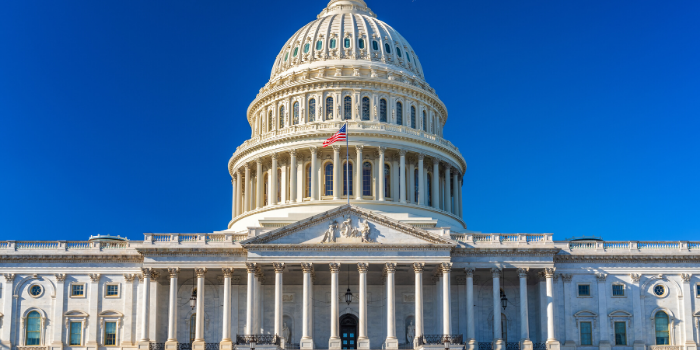
With more than 1,200 people testing positive for COVID-19 (coronavirus) in more than 40 U.S. states thus far, and with testing only just starting to ramp up, the U.S., like many countries worldwide, is facing a grave public health and economic crisis. Pandemic knows no borders, whether across national lines or within neighborhoods. But with some communities more susceptible to health and economic shocks, the U.S. federal government must take immediate action to ensure the most vulnerable members of our communities have, at the very least, affordable and quality health care, paid sick days, and support to provide nutrition and shelter for themselves and their families throughout this emergency.
We are working with partner organizations across a broad range of issues to urge Congress to pass robust legislation to protect vulnerable individuals and communities. As Congress and the administration consider a variety of responses, we urge the government to focus assistance on the people who need the most help, rather than on ineffective payroll taxes, tax cuts for corporations, or other measures that will only benefit those most well-off.
At the same time as we advocate for strong and decisive legislative action, we also call on the administration and Congress to denounce racism and bigotry connected to coronavirus. In particular, stereotypes and discrimination against people of Asian descent, including Chinese Americans, have been prevalent as the outbreak continues. We cannot let fear and anxiety lead to scapegoating and racism.
The list of policy priorities below is not comprehensive, but it is a starting point. We know more will likely be needed as this crisis continues. The House of Representatives is working on legislation right now that we expect will include some of these provisions, but that will just be a start. Join us by calling on your members of Congress to prioritize vulnerable individuals and communities in any coronavirus response through health care funding for states, paid sick days, nutrition assistance, unemployment insurance, and much more.
We are asking Congress to:
- Provide free and accessible testing for COVID-19 for all, including individuals without insurance, and regardless of geography, race, income, disability, immigration, or any other protected status.
- Ensure affordable and accessible vaccines and treatment.
- Increase health care funding for states, including by increasing the federal Medicaid match to states (known as the Federal Medical Assistance Percentage, or FMAP). In a public health emergency like this, states are responsible for much of the cost to respond, straining state health care systems and budgets. By increasing the FMAP, states will be better supported to address immediate health needs and allow states to use Medicaid to cover costs.
- Provide long-term, stable funding for community health centers, Medicaid Disproportionate Share Hospitals, Special Diabetes Program for Indians, and other essential programs that provide care to communities of color, people in poverty, and rural communities.
- Provide paid sick leave to all employees immediately. As public health officials call on workers to stay home while sick, it is essential that all workers can afford to stay home. Nearly half of all of the lowest paid workers do not receive any paid sick leave. The United States is one of just a handful of countries that do not mandate paid sick leave. Congress must address not only paid sick leave generally, but also the need for expanded paid sick leave in a public health emergency, including an extra 14 days off to allow for isolation or quarantine, school closures, or caring for a loved one.
- Strengthen our nation’s unemployment insurance (UI) system. Congress should increase funding to administer this program and allow individuals to request Disaster Unemployment Assistance before exhausting regular UI, protecting states from depleting their trust funds. Additionally, Congress and states should recognize the unique situation that workers face in this situation – an increase in economic need and a simultaneous requirement for many workers to restrict movement – by waiving waiting weeks and work search requirements and allowing workers who quit to care for quarantined family members access to UI.
- Increase nutrition and food assistance benefits and ensure flexibility. Every day, SNAP benefits are a lifeline for families across the U.S, especially in difficult and turbulent times. As officials are encouraging people to stock up on food for two weeks, many low-income, vulnerable families, including those that receive SNAP benefits, cannot afford to do so. As families look to stockpile food in event of a quarantine and schools closures impact the National School Lunch and Breakfast programs, we are calling for:
- Increased SNAP benefits and adapting Disaster SNAP to ensure families can stockpile;
- Increased WIC benefits and increased flexibility to support pregnant women or mothers with young children who face unemployment;
- The expansion of food distribution programs on Indian reservations; and
- The suspension of work/training requirements for SNAP for the duration of the pandemic.
In addition to congressional action, we urge the administration to suspend the implementation of recent regulatory changes that have decimated SNAP and restricted access so all who need nutrition and food assistance can access it.
- Increase funding for federal homelessness assistance programs. Additionally, Congress should create an emergency assistance fund to provide short-term financial assistance and housing stabilization services, as well as establish a moratorium on evictions during the crisis to ensure that more families do not become unsheltered and at higher risk.
- Ensure access to care for people with disabilities, such as making centers for independent living and other community-based organizations eligible for emergency services funds. People with disabilities are in all communities and fall into every category mentioned here, and compounding factors make them at higher risk of serious illness or death from COVID-19.
- Limit the overcrowding of prisons, jails, and immigration detention centers, where people are often held in close, crowded, and unsanitary conditions, making them especially vulnerable to the spread of the virus. Ensure access to clean water and soap in all facilities, as well as hand sanitizer, which currently may be treated as contraband because it contains a high level of alcohol.
- Ensure undocumented immigrants are able to access health care facilities without fear of being targeted by immigration enforcement agencies. Creating zones safe from immigration enforcement will allow people to seek effective medical attention when necessary, without fear of deportation or detention. We also must ensure that the pandemic is not used as justification for perpetuating anti-immigrant policies or harsh enforcement, which will do nothing to prevent the spread of COVID-19 within the U.S.
Earlier this week, Dr. Anthony Fauci, head of the National Institute of Allergy and Infectious Disease, warned that the crisis is going to get worse before it gets better. As we prepare for the worst, we must ensure protections for those most at risk of disease and catastrophic economic fallout. Call on your members of Congress to provide essential protections to the most vulnerable.
And as you advocate for these critical policy priorities, we hope you continue to do everything you can to keep yourself safe – social distancing, 20 seconds of hand washing, avoiding touching your face, and more. For more information on coronavirus, prevention, and treatment, please visit this guide from the CDC.
For Reform Jewish communities, the Union for Reform Judaism has a guide to help you navigate considerations around the coronavirus and the Central Conference of American Rabbis recently issued a response as well.
Related Posts

Remarks from Rabbi Eliana Fischel at Jewish Gathering for Abortion Access

Teens from North Carolina Speak About Environmental Justice


